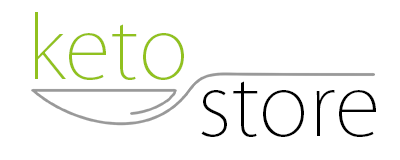Basil Seeds - Organic 250g Jar
Sweet Basil Seeds 250g jar
Organic, non GMO and no pesticide
Great for spontaneous breakfasts in a hurry as Basil Seeds swell in minutes, not hours or overnight. They are a nutrient powerhouse being rich in calcium, magnesium, and other electrolytes that are necessary for our body’s functioning. Their main key difference over chia is that they do not have lectins, which are inflammatory proteins that cause leaky gut syndrome. Also Basil seeds are very low in oxalate and have double the key nutrients than chia does.
Sizes available: this 250g Jar or 1kg Bag
What health symptoms are Basil seeds known to be useful for? Having basil seeds regularly may help you:
• maintain electrolyte balance and avoid conditions like dehydration
• lower high blood pressure due to its richness in potassium, magnesium, and iron which reduce strain on the cardiovascular system.
• high in fibre supports your gut health, improves cholesterol levels, and also makes you crave less unhealthy food by keeping you full.
• they contain alpha-linolenic acid, which promotes fat burning in the body.
• reduce risk of diabetes and obesity due to their anti-inflammatory nature.
• relieve constipation and bloating as Basil seeds are prebiotic and clean your stomach, with antioxidants, polyphenols, other plant compounds, as well as the Omegas.
• Basil seeds have been used ayurvedically by natural healers for a long time in treating kidney stones. Basil seeds act as a diuretic which helps rid the body of salt and detoxifies kidneys.
Both chia and basil seeds come from plants belonging to the mint family, so they look similar and swell up when in contact with liquids the same way. So their uses in seed puddings, drinks, porridge and baking are very similar.
Ingredients: Organic Sweet Basil Seeds
Macros per 100g: Energy 1424kJ, Protein 16.7g, Fat 20g, Saturated 1.7g, Carbs 0g, Sugars 0g Dietary Fibre 50g, Sodium 0mg.
Cost per 100g $5.98 for comparisons (we've seen these elsewhere for $11 per 100g)
5 key differences between chia and basil seeds
Lectins: Basil seeds have no lectins / chia seeds do. Lectins are inflammatory proteins that may cause leaky gut syndrome.
Nutrients: Basil seeds have double the nutrients than chia seeds. In a gram-to-gram comparison, nearly double the fiber, potassium, calcium, and iron than chia seeds. Basil seeds are also prebiotic and lectin free, unlike chia seeds. With more fibre and less fat, Basil seeds are great for digestion and reducing appetite.
Appearance: Chia seeds are oval and have a mix of colors - black, gray, brown, or white. Basil seeds are more elliptical more like rice shaped, smaller and have a pitch black colour.
Faster to hydrate and swell: Basil seeds only take a few minutes to swell in water, while chia seeds may take at least 30 to 40 minutes. Both seeds absorb moisture many times their weight.
Taste: Basil seeds do have a sweet mild flavour whereas chia are bland, neutral.
Uses for Basil seeds:
Basil seeds are used in Faloodas, lemonade, and porridge, plus even use them in baking. We haven't tried planting these Basil seeds to grow basil plants, but think they've been made for eating only.
How to prepare Basil seeds
Hydration time depends on what you put the seeds into. As a guide:
1 minute - 1/2 Cup of hot water and 1 Tablespoon seeds hydrates seeds in 1 minute
3-5 minutes - use cool water
30 minutes - cold water, juices, teas or milk of your choice
Overnight - gets you maximum hydration
Storage: Keep dry seeds at room temperature in an airtight moisture proof container. Once seeds are hydrated, keep refrigerated.
When starting out & Other tips
When including basil seeds into your diet daily and increase the intake slowly.
Should you have any complex needs, we recommend consulting health professionals especially during crucial moments in life. Be careful for dry seeds and children as they can be a choking hazard when not soaked in liquid. Seeds swell up when hydrated to 30 times their size.

